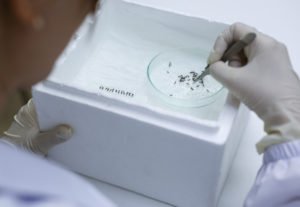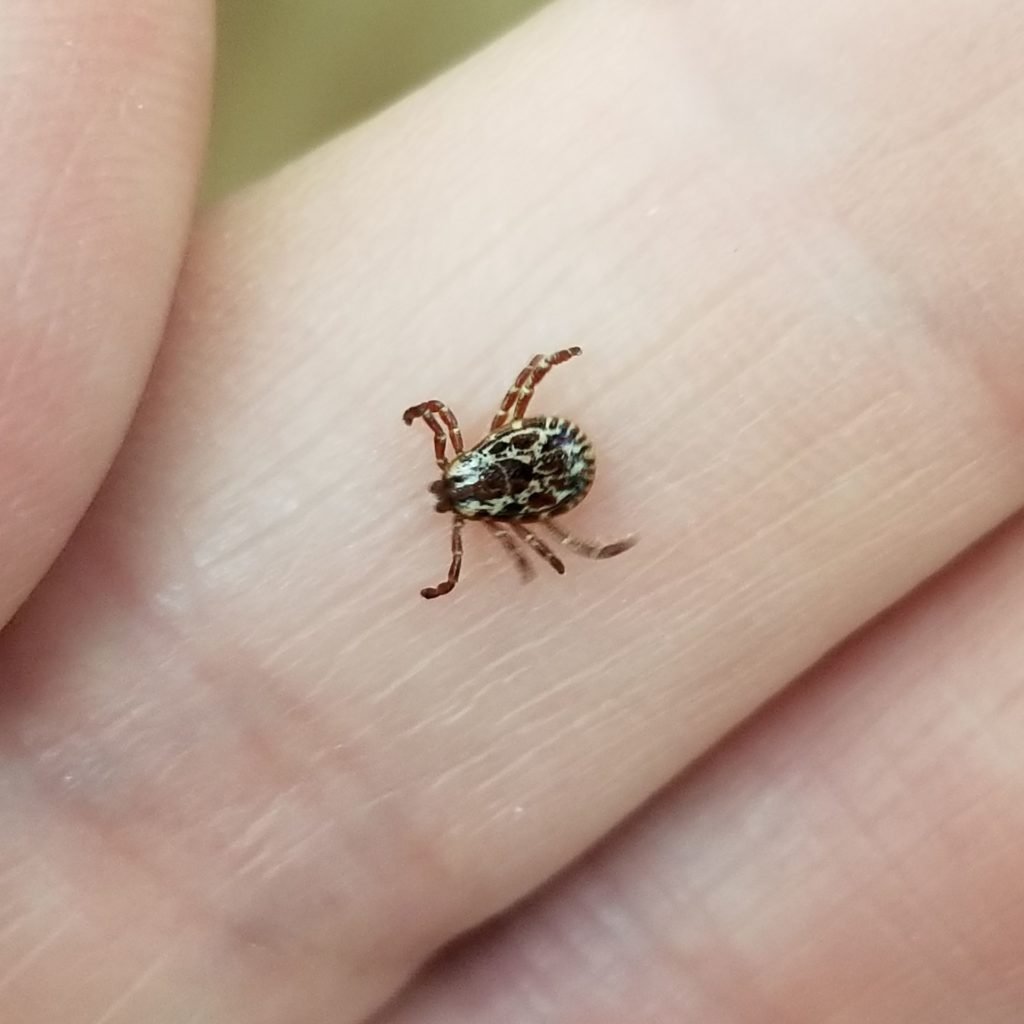Building a stronger network of trained and equipped vector control professionals was among the goals for the Western Gulf Center of Excellence for Vector-Borne Diseases. That goal is being reached thanks to the efforts of the Texas A&M AgriLife Extension Service.

Over the past five years, AgriLife Extension has spearheaded the Western Gulf Center’s frontline efforts to combat mosquitoes, ticks and other vectors of human and zoonotic diseases.
Phillip Kaufman, Ph.D., head of the Texas A&M Department of Entomology in the College of Agriculture and Life Sciences, said AgriLife Extension has enhanced the center’s outreach efforts and advanced its public health mission.
The West Nile outbreak in 2012 and subsequent disease outbreaks exposed the lack of consistent management across the state, Kaufman said. State and federal agencies addressed the problem by creating a task force, and AgriLife Extension spearheaded the effort, working with Texas A&M AgriLife Research, the Texas Department of Agriculture, and health agencies with established programs like Harris and Dallas counties.
When the Zika outbreak hit the U.S. in 2016, the Centers for Disease Control and Prevention decided to create the network of five regional centers focused on providing research, extension and education support for improving the proactive and reactive capabilities of public health officials to address vector-borne diseases.
The center’s outreach efforts have been led by Sonja Swiger, Ph.D., AgriLife Extension entomologist and associate professor in the Department of Entomology, Stephenville. Swiger developed and provided program material on vector identification, biology, pesticide use and safety, and record keeping for pesticide applicators and control professionals.
Kaufman said Swiger delivered an incredible amount of high-quality in-person and hands-on training around the state. When COVID-19 prevented in-person training sessions, she seamlessly adapted the coursework to online platforms.
Swiger partnered with other specialists and guest lecturers from Texas and neighboring states to enhance the training sessions. These partnerships added perspective and knowledge to training, but also expanded and strengthened the network of vector professionals across the Western Gulf Center’s region.
“The core mission for the Extension component was to produce training materials and deliver it to control professionals,” Kaufman said. “Dr. Swiger did an excellent job packaging information, whether it was taking her traveling roadshow around Texas and adjacent Gulf Coast states or providing online training and continued training for frontline professionals in this effort against vectors and disease-causing pathogens.”
Western Gulf Center capitalizes on AgriLife Extension’s reach
The Western Gulf Center of Excellence for Vector-Borne Diseases is based at the University of Texas Medical Branch and partners with the Texas A&M College of Agriculture and Life Sciences, AgriLife Extension, AgriLife Research, and more than a dozen other universities and public health agencies in the region.
The center and its four counterparts around the nation represent a $50 million, five-year national grant program. Funded by the Centers for Disease Control and Prevention, the program is designed to bolster research, education and outreach efforts aimed at preventing vector-borne diseases.
Swiger said the Western Gulf Center increased AgriLife Extension’s capabilities related to vector control education and outreach. Funding helped increase the number of applicator courses, added useful content to the curriculum, and helped create a network of well-educated public and private pest-control applicators.
The revised curriculum improved education on vectors like mosquitoes, but also expanded information on other public health threats like fleas, ticks and kissing bugs, Swiger said.
“Having the Western Gulf Center of Excellence helps us facilitate our programs, collaborate with other entities and interact with individuals we would not be able to reach otherwise,” she said. “It has opened doors for more, and more thorough, workshops in Texas, Arkansas, Oklahoma, Mississippi and Louisiana.”
The main focus for AgriLife Extension over the past five years was to teach private pest control managers and public pest management personnel about the latest vector control methodologies for municipalities, school districts and state agencies, Swiger said. Attendees also learned about the various vectors that pose a threat to human health.


The programs also provided an important opportunity for networking, Swiger said. The CDC expected the center to build relationships among local, regional and state public health personnel.
“The networking aspect has been invaluable not only for the people we are training, but also for the exchange of information and relationship building,” she said. “We are focused on training the individuals within local vector control, while having a network of professionals and agencies working toward the common goal makes us all more effective.”
The networking also lets academic researchers learn the needs of frontline vector control personnel.
Enhancing programs, training professionals
Starting in 2016, Swiger offered free, in-person one-day events focused on vector information and three-day, in-person, hands-on training for pest-control applicators.
Swiger said 3,696 participants have attended 62 one-day continuing education courses from 2016 to 2021, and 481 participated in 20 three-day classes between 2017 and 2021. About 600-700 people attend each year, though that number decreased in 2020 due to COVID-19.
But pandemic restrictions drove Swiger toward online training for new and experienced vector professionals. In the future, some training modules will remain online, but Swiger said most training needs to be in person and hands on.
To expand training opportunities, Swiger said the center has requested funding for an additional AgriLife Extension statewide vector specialist.
“I am booked around the state almost every week, and it is physically demanding to be there for all the programs needed to keep licensed applicators current, train new applicators, and collaborate with local partners,” she said. “Adding a program specialist would increase our impact.”
Going forward, Swiger said opportunities for collaboration will continue to expand between AgriLife Extension, AgriLife Research and the various experts and entities involved in the center. Swiger expects the curriculum to add new data from AgriLife Research projects, including information on insecticide resistance, how to test for resistance, and how to monitor vectors via traps.
Swiger said the Western Gulf Center’s focus on research and university-level education complements what AgriLife Extension has done over the past five years.
“AgriLife Extension has a great training program and access to an exceptional group of experts, the collective institutional knowledge and other resources that are at the network’s disposal for people in the field to call upon,” she said. “The center enhances our capabilities. We knew what needed to be done. We know there is more to be done. The center is committed to consistent improvement for local, state and regional vector control.”
-30-













